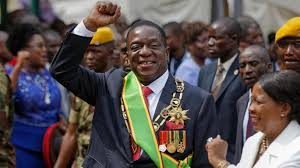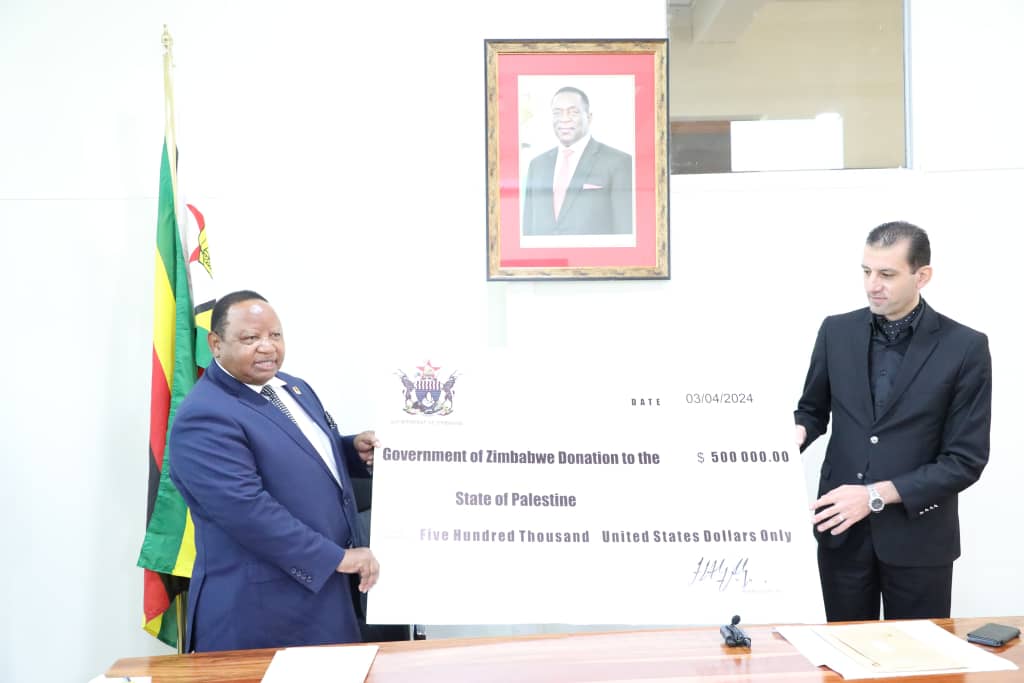Staff Reporter
Election rigging fears are mounting in Zimbabwe following the visit of the Russian Foreign Affairs minister Sergey Lavrov who held private talks with President Emmerson Mnangagwa at his Munhumutapa offices early on Thursday.
Lavov then addressed a joint press conference with his Zimbabwean counterpart Sibusiso Moyo where he said Russia has endorsed Mnangagwa
In a media conference after the meeting Lavrov said Russia was happy with Mnangagwa’s administration which stabilised Zimbabwe’s political situation. Mnangagwa rose to power after a military intervention in November last year which saw former president Robert Mugabe being ousted.
However, sources in the opposition fear Russia may influence the forthcoming crucial elections in favour of Mnangagwa as it seeks to re-establishing its former Soviet-era ties with African states — in particular with Zimbabwe.
The fears come on the backdrop of reports that Russia was implacted in the rigging of the United States of America elections which saw Donald Trump cruising to victory in 2016.
US officials officially accused Russia of attempting to influence the 2016 election by hacking the Democratic National Committee and other political organisations.
The Department of Homeland Security and the Office of the Director of National Intelligence issued the statement amid months of speculation that Moscow was the source of the hacks.
While addressing the media in Harare, Lavov said Zimbabwe enjoys cordial relations with Russia and the two nations have upped their relations in terms of the military and technical support, raising fears that elections may be rigged.
Zimbabwe is currently under a military rule after the military seized power from the former president Robert Mugabe in November last year.
Ironically current foreign affairs minister Moyo announced the take-over on the state television broadcaster on November 15 2017.
The military, using Zanu PF structures then endorsed Mnangagwa as the new Zimbabwean leader.
“So such relations between Russia and Zimbabwe military are a cause for concern because it is the junta that is in power now,” said one senior opposition leader who refused to be named.
“It is rare to see such a powerful figure (Lavov) crisscrossing the continent at a time when we are preparing for elections,” the official said.
After the end of the white regime in 1980, Zimbabwe strengthened its relations with Moscow despite pressure from Western Europe, who wanted to maintain hegemony over Zimbabwe’s vast untapped natural resources
The then Union of Soviet Socialist Republics, as Russia was known, soon established diplomatic relations with Harare on February 18, 1981 and Russia still maintains an active embassy here.
The climax of it all was during Zimbabwe’s international political hiatus, when on July 12, 2008, Russia and China proved that their political and economic ties with Zimbabwe were real by vetoing a UN resolution to impose sanctions on Zimbabwe which was sponsored by both the US and the UK.
On 16 September 2014, Zimbabwe and Russia witnessed the signing of several deals that culminated in the Darwendale Platinum mining project some 70km west of Harare.
Sources said Russia wants to protect its interests because Darwendale has one of the world’s largest platinum deposits. Around 10 million tonnes can be mined and processed annually, and there is potential to produce 25 tonnes of platinum group metals per year. The Great Dyke Investments (Pvt) (Ltd) — a Russo-Zimbabwe joint venture —made the findings after eight months of exploration and US$50 million of investments.








